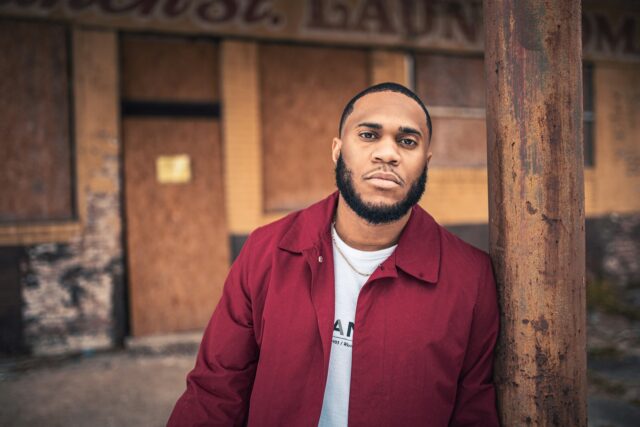Life doesn’t immediately go back to normal once you’re on the other side of narcissistic abuse.

The things you experienced while in the narcissist’s grip were incredibly hurtful and damaging, and their effects can be long-lasting if you don’t confront them head-on. Here are some truths you need to accept so you can begin your healing journey.
1. You weren’t imagining things — the abuse was real.

One of the most challenging aspects of narcissistic abuse is the constant gaslighting that makes you doubt your own reality. It’s time to accept that your feelings and experiences were valid. The abuse happened, and it wasn’t your fault. Acknowledging this truth is the first step towards healing and moving forward.
2. Your kindness was exploited, not appreciated.

Narcissists often target empathetic, kind-hearted people. They see these qualities not as virtues to be cherished, but as weaknesses to be exploited. Realising this doesn’t mean you should stop being kind, but it does mean learning to set boundaries and protect yourself from those who would take advantage of your good nature.
3. The ‘perfect’ relationship you thought you had was an illusion.

Many narcissistic relationships start with a period of ‘love bombing’, where everything seems perfect. It’s important to recognise that this wasn’t real love, but a manipulation tactic. True, healthy relationships have ups and downs, disagreements, and mutual respect — they’re not a constant fairy tale.
4. Your self-worth isn’t determined by someone else’s opinion of you.

Narcissists have a knack for making their partners feel worthless. It’s crucial to understand that your value as a person isn’t dependent on anyone else’s validation. You are inherently worthy of love, respect, and happiness, regardless of what anyone else thinks or says about you.
5. It’s okay to prioritise your own needs and wants.

In a relationship with a narcissist, your needs and desires often take a back seat. Now is the time to start putting yourself first. This isn’t selfish — it’s necessary for your wellbeing. Your needs and wants are just as important as anyone else’s, and it’s okay to act on that truth.
6. You’re not responsible for the narcissist’s behaviour or emotions.

Narcissists are masters at making their partners feel responsible for their actions and feelings. It’s important to recognise that you’re not accountable for anyone’s behaviour but your own. Their actions and emotions are their responsibility, not yours.
7. The silent treatment and other manipulative tactics were forms of abuse.

Narcissists often use subtle forms of emotional manipulation that can be hard to recognise as abuse. The silent treatment, withholding affection, and making you feel guilty for having needs are all abusive behaviours. Recognising these tactics for what they are is crucial for healing and avoiding similar situations in the future.
8. You’re stronger than you think you are.

Surviving narcissistic abuse requires immense strength and resilience. The fact that you’ve made it through and are now working on healing is testament to your inner power. Recognise and celebrate this strength — it will serve you well as you move forward.
9. It’s normal to miss the good times, even if they weren’t real.

Many survivors of narcissistic abuse feel guilty for missing their ex-partner or the good times in the relationship. It’s important to understand that this is a normal part of the healing process. Those feelings don’t invalidate the abuse you experienced or mean you should go back.
10. Healing isn’t linear — there will be good days and bad days.

Recovery from narcissistic abuse isn’t a straightforward journey. You might feel like you’re making progress one day, only to feel like you’ve taken two steps back the next. This is normal. Healing is a process, and it’s okay to have setbacks along the way.
11. Your emotions, even the difficult ones, are valid and important.
 Source: Unsplash
Source: Unsplash Narcissists often invalidate their partner’s emotions, especially when those emotions are inconvenient for them. It’s time to reclaim your right to feel. Anger, sadness, fear — all of these emotions are valid responses to what you’ve been through. Acknowledging and processing these feelings is an important part of healing.
12. You don’t owe the narcissist forgiveness or closure.
 Source: Unsplash
Source: Unsplash Many people feel pressured to forgive their abuser or provide them with closure. The truth is, you don’t owe the narcissist anything. Forgiveness can be a part of your healing journey if you choose, but it’s not a requirement. Your priority should be your own healing and wellbeing.
13. It’s okay to set boundaries with people who don’t understand what you’ve been through.
 Source: Unsplash
Source: Unsplash Not everyone will understand the complexity of narcissistic abuse. Some people might pressure you to ‘just get over it’ or question why you stayed in the relationship. It’s okay to set boundaries with these people, even if they’re friends or family. Your healing journey is yours, and you don’t need to justify it to anyone.
14. You’re not ‘damaged goods’ — you’re a survivor.
 Source: Unsplash
Source: Unsplash Narcissistic abuse can leave you feeling broken or unlovable. It’s important to recognise that surviving abuse doesn’t make you ‘damaged goods’. You’re a survivor who’s been through a difficult experience and is now working on healing. This resilience is something to be proud of.
15. Trust your gut instincts — they’re often right.
 Source: Unsplash
Source: Unsplash Narcissists are skilled at making you doubt your own judgement. As you heal, you might find that your intuition was often right, even when you were convinced otherwise. Learning to trust your gut instincts again is an important part of rebuilding your confidence and protecting yourself in the future.
16. It’s okay to take your time before entering a new relationship.
 Source: Unsplash
Source: Unsplash After narcissistic abuse, the idea of a new relationship can be scary. It’s perfectly okay to take your time, focus on yourself, and heal before considering a new partnership. There’s no timeline for when you ‘should’ be ready to date again. Trust your own pace.
17. You have the right to speak your truth.
 Source: Unsplash
Source: Unsplash Narcissists often silence their partners, making them feel like their experiences and opinions don’t matter. Reclaiming your voice is a powerful part of healing. You have the right to speak about your experiences, to say no, and to express your needs and wants without fear.
18. You deserve a love that doesn’t hurt.
 Source: Unsplash
Source: Unsplash Perhaps the most important truth to confront is that you deserve love that is kind, respectful, and doesn’t come with strings attached. Healthy love doesn’t demand that you compromise your values, ignore your needs, or constantly prove your worth. As you heal, hold on to this truth — it will guide you towards healthier relationships in the future.




